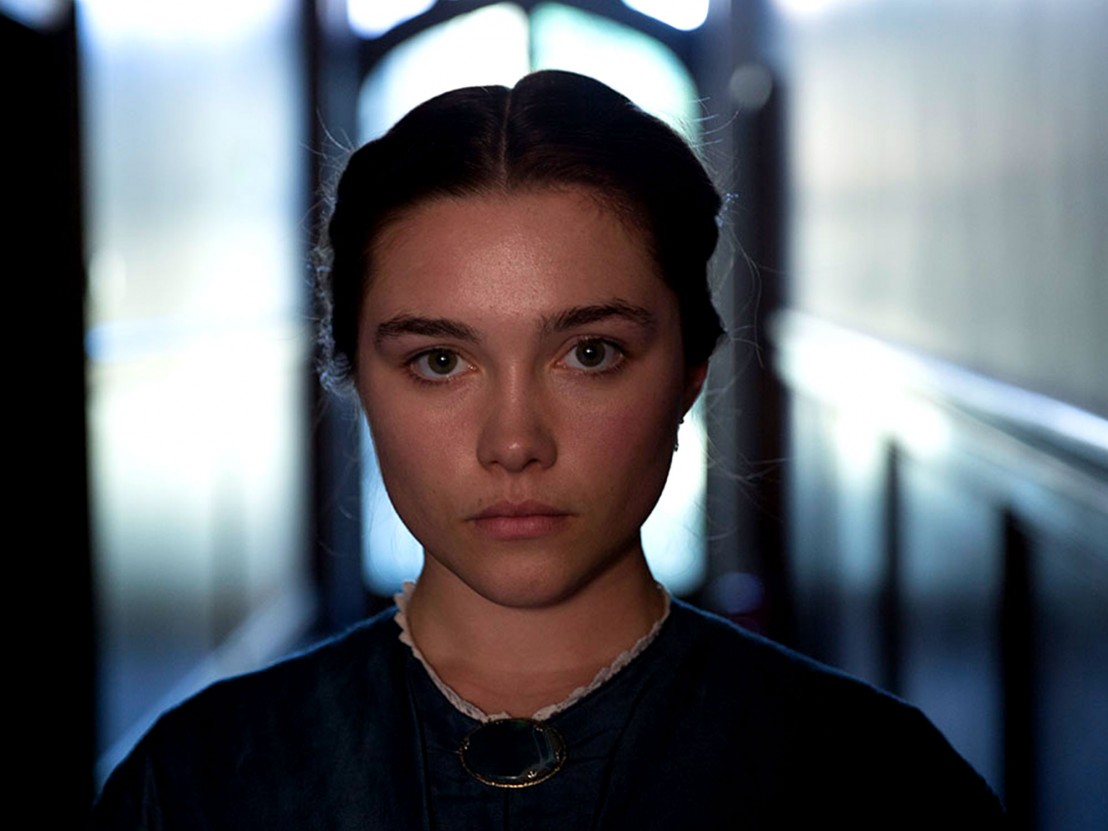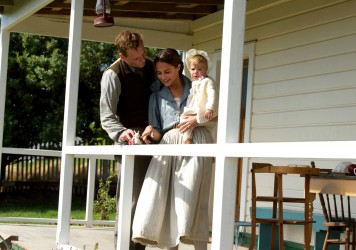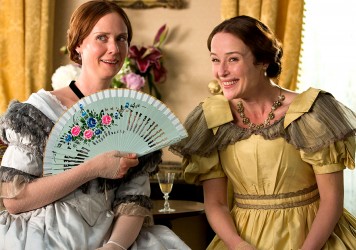
Florence Pugh shines in this smart period drama from director William Oldroyd and screenwriter Alice Birch.
Although the title of William Oldroyd’s striking debut feature does not specifically refer to Shakespeare’s anti-heroine, but rather to that of the 1865 Russian novella ‘Lady Macbeth of the Mtsensk’, the title character here is as reckless, stubborn and violent as in the classic play.
Screenwriter Alice Birch has cannily relocated the story from Russia to 19th-century Somerset, where the idyllic rural setting soon becomes more stifling than relaxing. We open on the wedding night of young Katherine (beautifully played by Florence Pugh, the breakout star of Carol Morley’s The Falling), who quickly discovers that she has married into a very strict household and that her husband has neither affection nor desire for her.
Bored and insulted by his persistent refusal to sleep with her, Katherine fills her long and empty days by being wilfully sadistic and unnecessarily authoritative to the staff on her husband’s farmstead. The main target of her abuse is black maid Anna (Naomi Ackie). She quickly and violently rejects the possibility of their being friends or sharing any camaraderie in a shared struggle against dogmatic men. It’s a subtle suggestion of things to come, indicating that far from the tortured damsel in distress we might expect from a less complex film, Katherine is in fact deeply unsympathetic, selfish and aggressive.
As the film progresses, Katherine’s behaviour proves more and more alienating for the audience as she seeks to sate her desires with increasing violence. When she discovers a group of farm hands sexually assaulting Anna in a barn, she shows no interest in comforting the woman, instead cruelly questioning her about the main wrongdoer, the hunky Sebastian (Cosmo Jarvis). An intense sexual relationship soon develops between the two of them.
But this is not exactly the exercise in feminist revenge and sexual empowerment it initially appears to be. Katherine takes particular delight in parading the man that was once Anna’s lover in front of the humiliated maid; her own, constantly absent husband’s feelings on the matter remaining something of an after-thought for the woman. Deprived of a true partner in crime – Sebastian remains little more than a sex object and an ineffectual co-conspirator at best – Katherine is less Lady Macbeth than a more proactive, more imaginative and more violent Madame Bovary.
The two characters, whose literary origins were created merely a decade apart from one another, share the same isolation and boredom. Oldroyd’s film deploys a blank, realist aesthetic akin to Flaubert’s unemotional, descriptive and detached free indirect discourse. Katherine’s erratic behaviour bursts out of her in almost silent, masterfully composed static shots and the effect of surprise is particularly effective and darkly comic when her mischief is childish or aimed at truly oppressive men.
The film makes a decisive shift in its last act as Katherine stops at nothing to secure a life together with her lover. By contrast, Sebastian struggles to handle the trauma of the escalating crimes they commit to be together. Events take an inevitably darker turn when innocents become the collateral damage in Katherine’s quest for freedom, the film ending on a brutally sour note with Katherine now more alone than ever.
Published 12 Sep 2016

The star-spangled tag team of Michael Fassbender and Alicia Vikander can’t save this ludicrous period weepie.

By Anton Bitel
A vital reimagining of ʻThe Scottish Play’ with stellar turns from Michael Fassbender and Marion Cotillard.

A stunning performance from Cynthia Nixon anchors Terence Davies’ unromantic portrait of reclusive American poet Emily Dickinson.